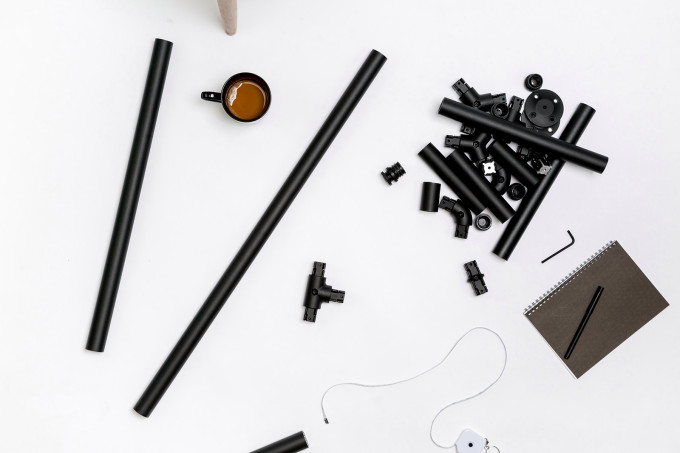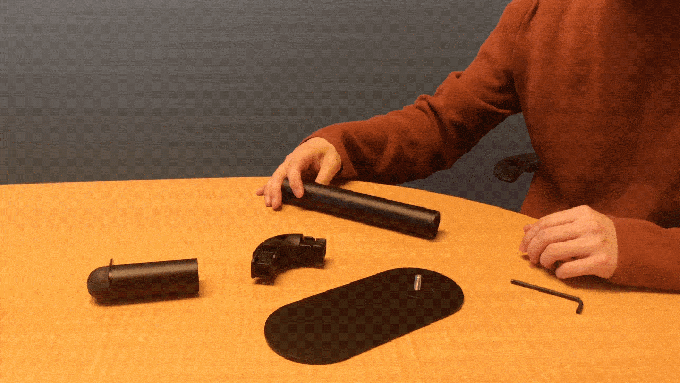
Buying furniture sucks. Getting rid of it later is worse.
Aalo, part of the Y Combinator Winter 2018 class, is trying to fix both sides of that equation. They want you to design and build your own furniture… and when you’re done with it, turn it into something else. They’ve built a system of interlocking, interchangeable parts which you can use to build their designs or create your own.
“Furniture”, here, mostly means things to sit your stuff on at this point — not stuff you sit on. Think bookshelves, tables, and shoe racks — not couches, beds, and chairs just yet (though people have built benches with it.)
Some examples:
The system is currently made up of around ten different components, from different lengths of beams to different types of connectors and mounts. Furniture can be ordered in pre-arranged kits — but if you’re feeling creative, each component can be ordered individually.
Each piece is powder-coated aluminum in white or black, super strong, and snaps together with just an Allen wrench. Here’s a quick GIF of the company’s founder, Sejun Park, building a headphone stand at our office (sped up for the sake of file size – actual assembly time was ~20 seconds):

Aalo was born out of a good ol’ failed DIY attempt. Sejun bought a shelf for his new apartment from a nearby big box store, but the one he liked best was a bit too long for his wall. He busted out his hacksaw and started cutting away at the wood to slim it down… only to realize that it wasn’t really wood at all, but a thin wood veneer wrapped around a cardboard core. Previously a manufacturing engineer for Toyota/Lexus, he realized there had to be a better way.
The price of anything you build would vary based on the components involved. It tends to work out to be a bit pricier than stuff you’d find at Ikea or Target, but less than what you might find in a designer store. That headphone stand up above would cost about $35, for example; their design for a shoe rack, meanwhile, goes for $80.
I love the idea of taking an old piece of furniture and turning it into something new, and that it’s built into the core of this whole system. Tired of your TV stand? Break it down, turn it into a bike rack. Don’t want that table anymore? Tear it apart, order a few small pieces, and turn it into a couple plant stands.
Sejun tells me that in time, the system should be able to look at the components you own and recommend other things you might build from them — tapping a community-driven catalog of creations, perhaps — before shipping you only the parts you need.


